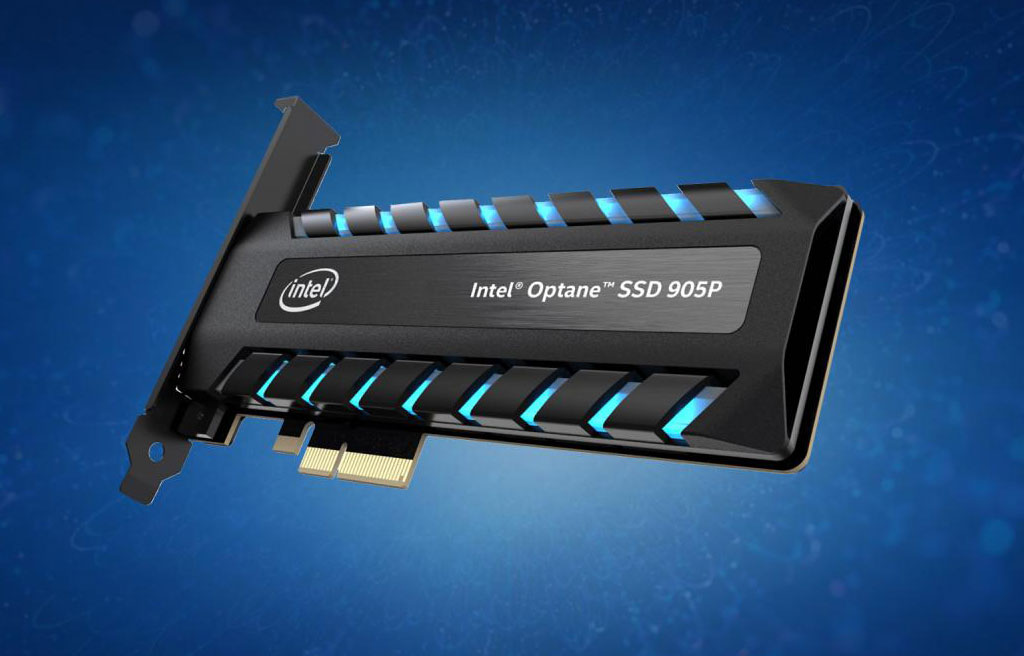Intel gives up on making Optane SSDs for consumer desktop PCs
Existing Optane SSDs for the client segment are being phased out and there are no plans to replace them.

It was not that long ago when Intel pitched its Optane drives as being the best SSDs for gaming, touting increased performance and responsiveness at lower queue depths "where most gaming action happens." And indeed we did find some of Intel's solutions like the Optane 905P shown up top to be extremely fast, albeit also extremely expensive. It's all moot now, though, because Intel is discontinuing its entire line of Optane SSDs for client/consumer desktops.
Through a series of Product Change Notification (PCN) documents, Intel has effectively killed off every consumer Optane-only SSD, including the 900 and 905P series, 800P series, and M10 series. Retailers can longer submit orders for any of those product families, and the last shipments will go out February 26, 2021.
That means you will still be able to find them in retail channels for a few months, up until buyers deplete existing inventories. This affects over a dozen SKUs in a variety of form factors. Here's a list of affected models:
- Optane 900P/905P (add-in-card)—1.5TB, 960GB, 480GB, 280GB
- Optane 900P/905P (U.2)—1.5TB, 960GB, 480GB, 280GB
- Optane 905P (M.2)—380GB
- Optane M10 (M.2)—64GB, 32GB, 16GB
- Optane 800P (M.2)—118GB, 58GB
Not only are existing models discontinued, Intel also said it has no plans of replacing them with newer drives.
"Intel will not provide a new large capacity Optane Memory SSD as a transition product for the client market segment. Intel will focus on the new Optane Memory H20 with solid state storage for the client market segment," Intel states in each of its related PCN documents.
Our friends at Tom's Hardware reached out to Intel for clarification on if this means Intel has ended its Optane-only product lines for consumers, to which the company said that is "technically correct, but consumers do benefit from Optane-based solutions like the Intel Optane Memory H20, since it is for mobile consumers."

Best CPU for gaming: the top chips from Intel and AMD
Best graphics card: your perfect pixel-pusher awaits
Best SSD for gaming: get into the game ahead of the rest
Intel's Optane Memory H20 is a hybrid solution combining NAND flash and Optane memory on the same module, with the latter acting as a high speed cache to speed up performance. It can't be installed in desktop PCs, though—compatibility is limited to 11th Gen Core U-series CPUs and later.
Keep up to date with the most important stories and the best deals, as picked by the PC Gamer team.
This is not a surprising move. SSDs in general have gotten much faster over the last couple of years, especially with the push into PCIe 4.0 territory. PNY, for example, recently announced the XLR8 CS3140 with rated read speeds of up to 7,500MB/s.
The biggest telltale sign, however, came when Intel sold off its share in a joint fabrication plant dedicated to the production of 3D XPoint memory to co-venture memory manufacturer Micron. Both companies since have chopped and changed various production deals for the memory IP, which Intel still retains part-share of and can develop independently of Micron, if it so wishes (one of many decisions Intel's incoming CEO, Pat Gelsinger, will have to make).
There's also the fairly recent announcement from Intel of a multi-year sale off its SSD and memory business to SK Hynix. The deal did not include Intel's 3D XPoint IP that it jointly developed with Micron, which it will still offer in Optane products for the data center segment, but it does show Intel's intent of getting largely out of the memory game.
Paul has been playing PC games and raking his knuckles on computer hardware since the Commodore 64. He does not have any tattoos, but thinks it would be cool to get one that reads LOAD"*",8,1. In his off time, he rides motorcycles and wrestles alligators (only one of those is true).


